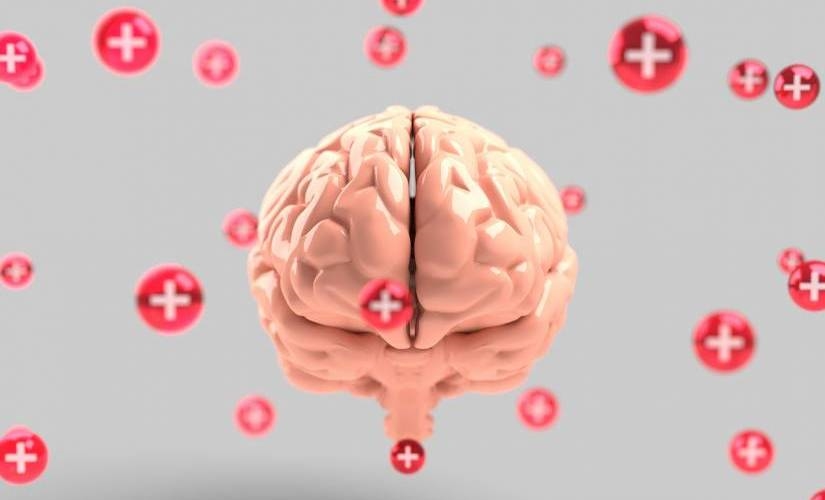In the Middle of a Mental Health Crisis, We Still Don’t Have the Digital Ecosystem Patients Deserve
In the Middle of a Mental Health Crisis, We Still Don’t Have the Digital Ecosystem Patients Deserve

According to the Centers for Disease Control and Prevention, 40% of adults reported experiencing mental illness or substance abuse issues in June 2020. COVID-19 certainly exacerbated these numbers, but this trend has been climbing for some time. What’s worse is that only 45% of people who experience mental illness received treatment in 2019. How can the healthcare system accommodate the pressing need for widespread mental health services?
There’s plenty of attention given to artificial intelligence and its role in healthcare.
Healthcare systems are not currently primed to harness the power of these technologies to alleviate the mental health crisis.
Providers must carefully consider each piece of the technological puzzle to achieve a future in which technology can improve our prognoses.
Promising Technologies
First, IoT devices’ increasing proliferation and sophistication allow healthcare providers to remotely monitor patients and gather nuanced real-time data about patients’ moods, behaviors, and biology.
Watches can track sleep, GPS can identify daily schedules, and applications can provide insights into communication patterns. For example, in one study, researchers monitored subjects’ Facebook messages and photos. Incredibly, they were able to predict which of the subjects were experiencing mood disorders or schizophrenia.
All this information is invaluable. But, imagine if your doctor could help you identify when you might be at risk to enter a depressive episode before it begins or if they could detect symptoms of mental illness before more harmful behaviors manifest.
Mountains of Data
The amount of data that is available and necessary to provide insights into mental health is monumental.
At some point, the sheer volume of data itself becomes a problem — which is why edge computing is the next piece of the puzzle.
Until recently, we simply didn’t have the computing power to gather, clean, store, and analyze the volume of data needed to make a difference in large-scale mental health solutions. The advent of 5G promised to support compounded data transference, yet we are rapidly outpacing even 5 G’s capabilities. As a result, it is effectively being rendered obsolete as it deploys.
Where Edge Computing Comes Into Use
That’s why the second part of this equation involves edge computing. If you’re uploading large volumes of data to the cloud that would be required for mental health treatment, that process can take hours. That delay is known as latency, and it can make a difference in successful diagnosis or treatment.
Instead, edge computing allows for closer processing of data directly on a local device, which eliminates latency and lowers storage costs for providers. In an event featuring the co-presidents of the Chan Zuckerberg Biohub, leaders argued that cloud computing costs were getting in the way of scientific advancements, so edge computing is clearly key.
Security on the Edge
It’s also less of a security risk because it uses a distributed network for data transfers, and data is often processed just a few feet from where it will be used. For sensitive data (like a patient’s mental illness symptoms), this increased security is a plus.
How This Process Plays Out
Once the data is collected through IoT devices and transferred via edge computing, it can finally be analyzed. As a result, data-based diagnostic applications of AI can allow doctors to monitor better, diagnose, and treat patients.
There have been various approaches when it comes to using AI algorithms to diagnose and monitor mental illness. For instance, I’ve even seen a founder measure voice frequency changes to monitor the progression of an illness.
After a patient has been diagnosed and treatment begins, AI can help monitor and track the efficacy of treatment plans and medications through biomarkers, digital behavior, and so forth. Currently, doctors simply ask patients whether they feel better after using a drug for a certain period.
If the answer is “yes,” they stay the course. If the answer is “no,” they try a different drug. AI tools could remove subjectivity from the process and help both doctors and patients know when real progress is being made — or when adjustments are necessary.
Are Healthcare Systems Ready for These Shifts?
Healthcare systems are not prepared to meaningfully adopt these powerful technologies.
The digital ecosystem the healthcare industry thinks it needs is vastly different from the one it actually needs.
Typically, the healthcare industry has lagged behind other sectors in adopting data-driven technology, focusing instead on advancing solutions such as CRISPR. And though healthcare has been relatively eager to adopt AI, it has focused mainly on the diagnostic stage.
Much less attention has been paid to the data-driven technologies needed to build an AI-enabling infrastructure. COVID-19 showed the need for and possibility of faster digital transformation, but innovations can still move at a snail’s pace.
Bridging the Gap
There is also a wide gap between the people developing this technology and the people in healthcare who would use it. That distance causes many issues, including suspicion and confusion.
Besides, there is a data monopoly when it comes to cloud-based applications, resulting in cloud service providers owning the data they are hosting.
With HIPAA and other regulations, having the information in someone else’s hands can be troublesome.
It’s understandable for healthcare providers to approach technology with an abundance of caution, yet data-driven technologies can ease the mental health crisis and save lives.
That requires a robust digital ecosystem from end to end. IoT, edge computing, and AI can have a transformative impact on healthcare — but only if providers let them.
Image Credit: Provided by the author; Thank you!
The post In the Middle of a Mental Health Crisis, We Still Don’t Have the Digital Ecosystem Patients Deserve appeared first on ReadWrite.
(95)


